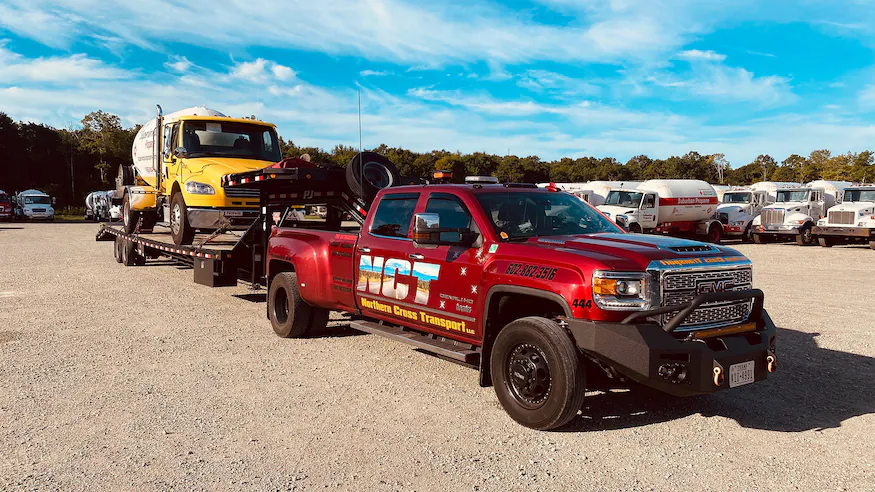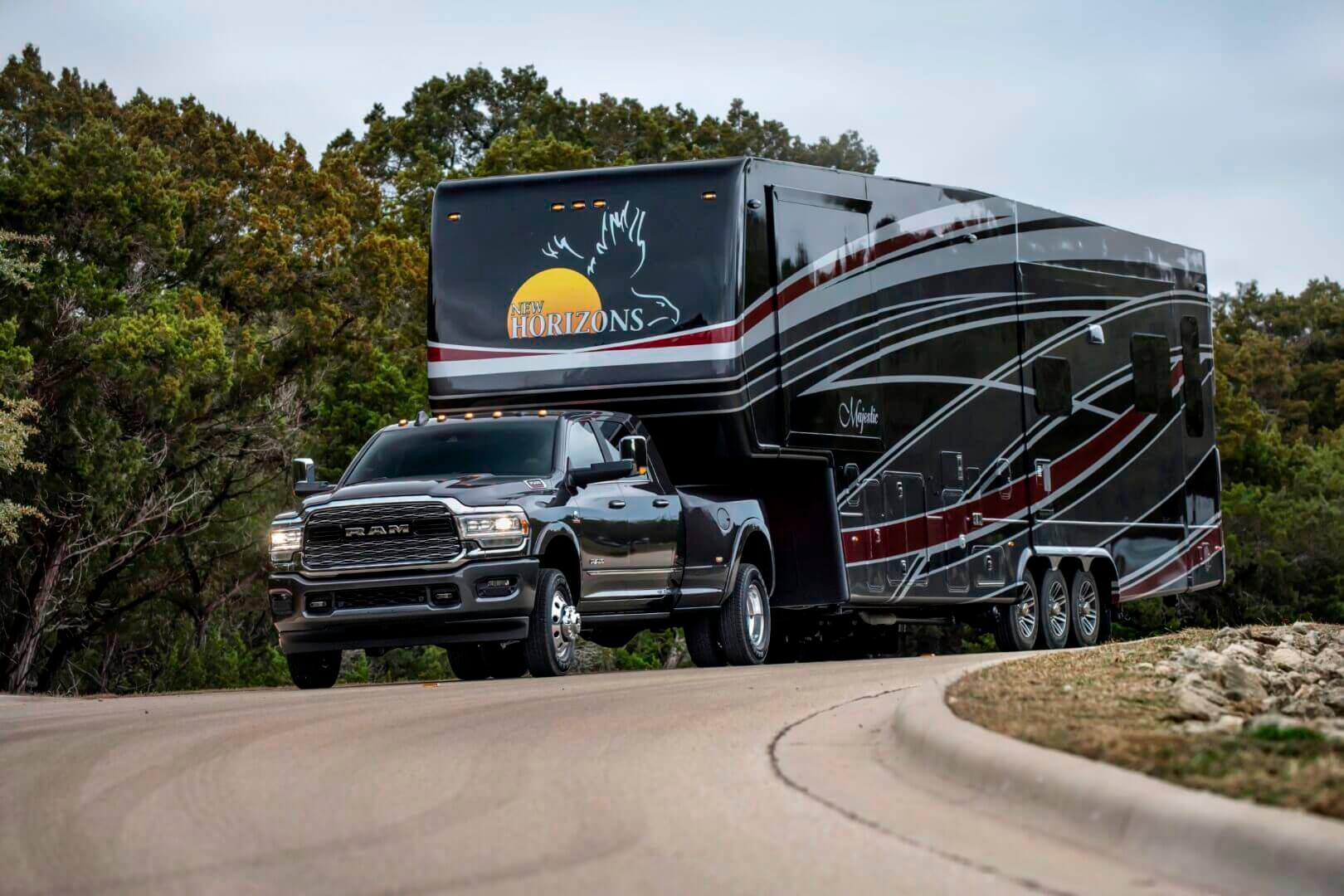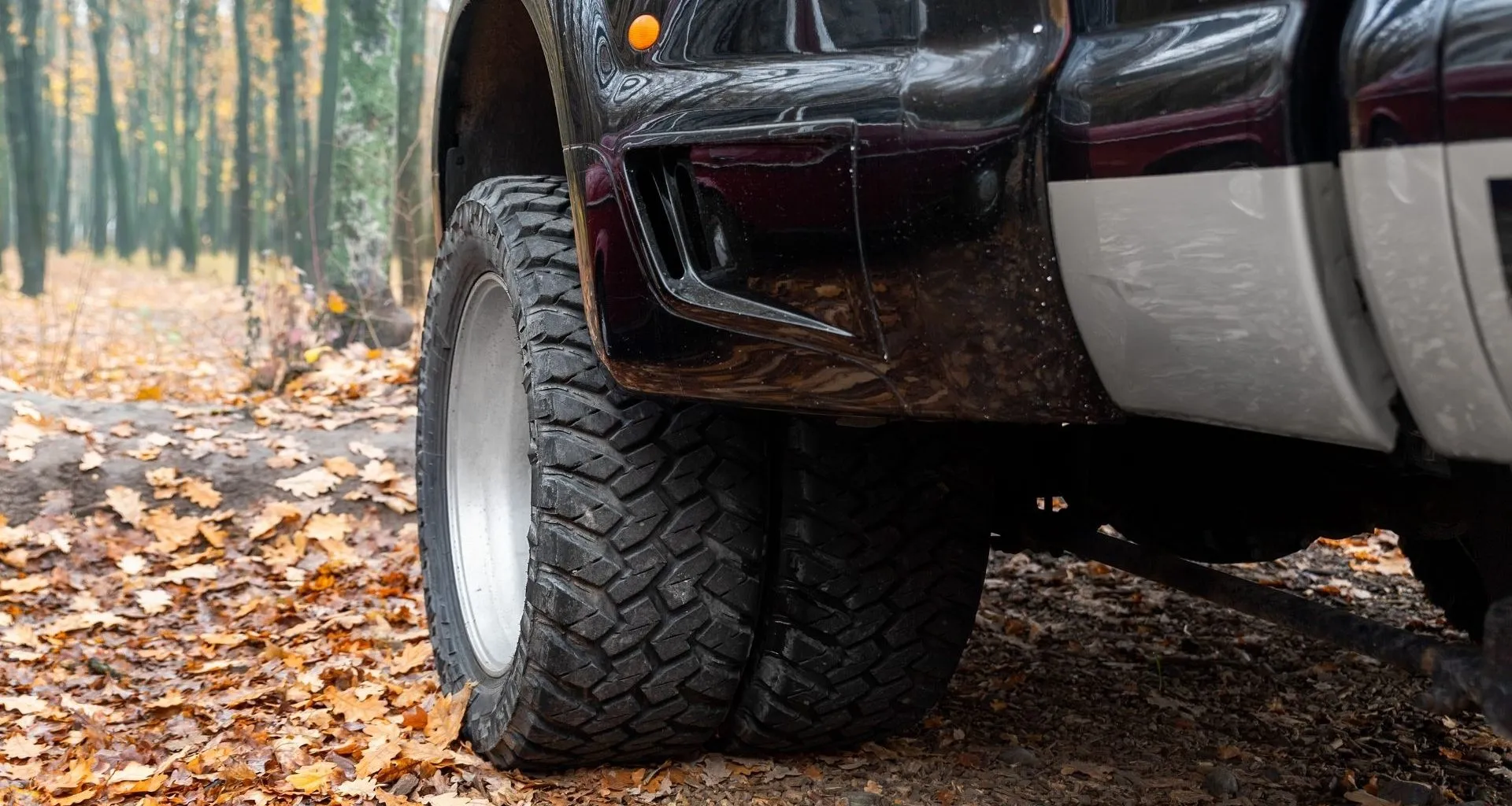What is a dually truck? Dually trucks (otherwise known as dual rear wheel trucks) are widely viewed by RVers in RVs as an important towable and payload option. The dual wheel trucks are essentially pickups and trucks equipped with two rear wheels designed for towing heavy loads. A dual trailer will provide increased stability and control while increasing load capacity to tow a large amount.
There is no dual axle needed for any five or six wheels or travel trailers. But these vehicles can carry even heavier trailers or fifth wheels safely with their increased towing capacities. If it weighs more than 14500 pounds then maybe it is worth considering buying this vehicle. Most traction capacity is provided by the drivetrain.
Dually trucks, which may also be called a dual rear wheel truck is a type of pickup truck or commercial car with four rear wheels rather than two. A dual rear axle truck's purpose is to provide increased stable load and higher towing capacity.
Technically the term "dual rear wheel" or DRW for short translates to safer driving and greater stability for passengers. The use of 2 or 1 wheels allows trucks to distribute the load's weight evenly.
If trucks have double wheels on more stability one side they have double front wheels on both sides. They are generally marketed for heavier duty performance, and are often known as “one-ton” pickups, as they can usually carry 2,000 pounds on a single bed and a tow vehicle or trailer.

History of Dually Trucks
Dually trucks, also known as dual rear wheel (DRW) trucks or "duallies," are trucks with four tires on the rear axle instead of the traditional two. This design provides additional stability and increased towing and payload capacities. Here is a brief history of these types of trucks:
Early Years (Late 19th and Early 20th Century)
The earliest dually trucks trace back to the late 19th century, where they were primarily used for heavy-duty commercial purposes such as transporting goods, farming, or construction. During this time, vehicles were often customized for specific needs, and the addition of a second set of rear wheels provided more stability and capacity for heavy loads.
Post-WWII Era (1940s-1950s)
Post-WWII, advancements in the auto industry led to an increase in the production and usage of dually trucks. For instance, Dodge introduced a factory-built dually in 1946, called the Power Wagon.
Modern Era (1980s-Present)
In the 1980s, pickup trucks in general saw an increase in popularity among consumers, and this extended to dually trucks as well. This led to more manufacturers introducing their own versions. For example, Ford released its first dually truck, the F-350, in 1980. Over time, these trucks became more comfortable and sophisticated, with many of the conveniences and amenities found in passenger vehicles, making them popular among those who needed the capacity for hauling heavy loads but also wanted a vehicle for everyday use.
In the 1990s, the primary consumers of dually trucks were individuals who needed them for work, like contractors and ranchers. However, as recreational vehicles and horse trailers became larger and heavier, more individuals found a need for the towing capabilities of dually trucks.
Dually trucks continue to be popular in the 21st century, especially for commercial uses and among outdoor enthusiasts. Modern dually trucks are larger, more powerful, and more luxurious than their predecessors, equipped with advanced technology, such as trailer sway control, integrated trailer brake controls, and diesel exhaust brakes for improved towing and hauling.
What Are the Benefits of a Dually Truck?

Duallys are winning for more towing and more payload capability. This is the best choice for trailers weighing over 20kg. When weight increases putting extra wheels into a car can help stability and reduce a potential problem. It's dual rear wheels are very beneficial in these goals.
Several Dual trucks have two wheels, while many other trucks are four-wheel drive. If a Dually is two wheel drive, the rear tire is the one pulling the vehicle and everything it carries out. These trucks are usually cheaper, but when they're stuck in the mud it won't really help. All four wheels improve the traction of vehicles on uneven terrain. Both front and rear tires pull in parallel. There are other points where contact is pushed forward.
Diesel engines have also become more common on diesel-powered vehicles than gasoline engines in many cases towing and payload only. The truck has heavier load hauling capacity and a greater weight capacity.
Dually trucks may be bigger and heavier than standard trucks due to a pair of rear wheels rather than one pair. It offers many advantages over a standard truck in carrying the weight.
This extra wheel gives you more flexibility. Increases tow and payload capability. More Stable for trailers particularly in windy conditions (additional security when needed). Ideal for fifth wheel trailers or for those carrying heavy loads.
Comparative to conventional pickup trucks, dually trucks have clear performance advantages including increased payload capacities maximum tyre capacity and maximum weight capacity, improved grip and stability, additional real wheels, a stronger rear axle, and enhanced traction during the hauling process.
How Many Miles Per Gallon Does a Dually Truck Achieve?

Dually trucks - which can be considered a fullsize pickup up to 8,500 pounds - do have EPA fuel-efficiency ratings that do nothing for their fuel mileages. While actual fuel economy can vary significantly depending on the driving style, conditions and weight of a full truck bed and load, the top dually truck can achieve fuel economy numbers around teens and even in the 20s.
Do You Need a Dually for a Truck Camper?

A truck camper is a type of RV that you can attach and detach from a pickup truck. Whether you need a dually to carry a truck camper depends on a few factors:
Weight of the camper: Truck campers can vary significantly in weight, from around 1,000 pounds for small, basic models, up to 5,000 pounds or more for larger, fully-equipped models. You'll need to know the weight of your camper when fully loaded (including water, propane, food, and gear), and make sure your truck's payload capacity is sufficient to handle this weight.
Payload capacity of your truck: This is the maximum amount of weight that your truck can carry, including the weight of passengers, fuel, and cargo. You'll need to make sure this capacity is sufficient to carry the weight of your camper, plus any other weight you'll be adding to the truck.
Stability: Dually trucks provide more stability than single-rear-wheel trucks, especially under heavy loads. This can make driving safer and more comfortable, especially in windy conditions or on uneven roads.
For larger, heavier campers, or if you plan to carry a lot of additional weight in your truck, a dually may be beneficial.
Do You Need a Dually for Towing a Fifth Wheel or Travel Trailer RV?

Whether or not you need a dually (a pickup truck with four rear wheels, two on each side) to tow a fifth wheel or travel trailer RV depends on several factors, primarily the weight of the RV you are towing and the tow rating of your vehicle.
In general, dually trucks are designed to handle higher weight loads and provide more stability when towing heavy trailers, which can make them a good choice for towing large fifth wheel or travel trailer RVs. Here are a few factors to consider:
Weight of the RV: Fifth wheel and travel trailer RVs can vary significantly in weight, ranging from a few thousand pounds to well over 10,000 pounds. Check the Gross Vehicle Weight Rating (GVWR) of your RV, which includes the weight of the RV itself plus maximum allowed cargo. This shouldn't exceed the towing capacity of your vehicle.
Towing capacity of your vehicle: Every vehicle has a specified towing capacity, which is the maximum amount of weight it can safely tow. You'll need to know this number for your vehicle and make sure it's sufficient for the weight of your RV.
Stability: Dually trucks generally provide more stability when towing, especially in windy conditions or when semi-trucks pass by on the freeway. The extra two tires in the rear help to evenly distribute the load and provide a wider stance.
Payload capacity: In addition to towing capacity, consider the payload capacity of your vehicle. This is particularly important when towing a fifth-wheel RV, as the hitch weight (the weight pressing down on the truck's bed from the trailer) is included in the payload. Dually trucks often have higher payload capacities than their single-rear-wheel counterparts.
In short, if you are towing a large, heavy fifth wheel or travel trailer RV, a dually can certainly be beneficial. However, if your RV is lighter and your non-dually truck has a sufficient towing capacity, a dually may not be necessary. Always ensure you're within all weight limits to ensure safety.
Are Dually Trucks Worth It?
Pros of Dually Trucks:
Towing Capacity: As mentioned before, dually trucks have a larger towing capacity than most standard trucks. If you're planning to tow heavy loads regularly, such as a large boat, RV, or heavy equipment, a dually may be a necessity.
Stability: Dually trucks offer increased stability when towing heavy loads, especially in windy conditions or on uneven terrain. The extra set of wheels helps distribute the weight and provides a wider stance, which can improve handling.
Payload Capacity: Dually trucks often have higher payload capacities, which can be beneficial if you need to carry heavy items in the truck bed or if you're towing a fifth-wheel trailer that puts a significant amount of weight onto the hitch.
Cons of Dually Trucks:
Cost: Dually trucks are generally more expensive to purchase, maintain, and operate. They consume more fuel, and replacing tires can be more costly because there are six instead of four.
Practicality: If you're not frequently towing heavy loads, the benefits of a dually truck may not outweigh the costs and inconveniences. For everyday driving and light-to-moderate towing, a standard pickup truck may be more practical.
Depending on your needs and wants, A Dually truck can be worth it if you intend to be towing a lot.
Can A Dually Be 4 Wheel Drive?
Several Dual trucks have two wheels, while many other trucks are four-wheel drive. If a Dually is two wheels driven, the rear tire is the one pulling the vehicle and everything it carries out. These trucks are usually cheaper, but when they're stuck in the mud it won't really help. All four wheels improve the traction of vehicles. Both front and rear tires pull in parallel. There are other points where contact is pushed forward.
How much does a dually truck cost?

New dually trucks from popular manufacturers like Ford, Ram, and Chevrolet could typically range from around $40,000 to $80,000 or more. Higher-end models with additional features, luxury trims, and upgraded capabilities can easily exceed this range. Used dually trucks can vary widely in price based on age, mileage, condition, and other factors.
In addition to the purchase price, remember to consider other costs associated with owning a dually truck:
Fuel: Dually trucks typically have larger engines and are heavier than standard trucks, leading to higher fuel consumption.
Maintenance and Repairs: More tires mean more cost for tire replacement and rotations. Also, the maintenance of a larger diesel engine (common in many dually trucks) could be higher than a standard gasoline engine.
Insurance: Insurance costs can be higher for dually trucks, especially considering they are often more expensive than their single-rear-wheel counterparts.
Do dually trucks have more power?
Trucks usually house the most powerful power engine offered by the manufacturer, because the trucks have high rear wheel ratios.
The power of dually trucks, like most vehicles, can vary significantly depending on the model and the specific configuration of the engine. Most dually trucks on the market typically have engines that produce between 300 to 450 horsepower, and torque figures often range from around 600 to 1,000 lb-ft, especially in diesel configurations



